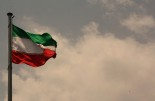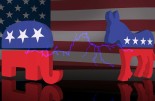UBS AM: Stagflation, geopolitics, Trump 2.0, asset allocation and currencies
UBS AM: Stagflation, geopolitics, Trump 2.0, asset allocation and currencies

UBS AM’s survey collated the unique insights from almost 40 leading central banks at a time of geopolitical economic and structural challenges to the investment landscape.
Max Castelli, Head of Global Sovereign Markets Strategy and Advice, UBS Asset Management:
'This year, the shift from monetary policy to geopolitics was palpable. There was far less talk about inflation or rate paths – and much more about scenario planning for global disruption.'
'The overwhelming concern about a renewed trade war under the second Trump administration stood out. Nearly three quarters of reserve mangers flagged this as the top global risk – ahead of inflation or rate volatility. That says a lot about the current sentiment.'
Survey highlights
Economic/Financial Outlook: There was a striking increase in pessimism in the economic outlook with stagflation considered to be as likely over the next five years as a soft-landing, which was last year’s most expected outcome. 40% expect US headline CPI to end up in the 3-4% range in a year’s time. Over 80% expect Fed policy rates to be in the 3-4% range in one year.
Key Risks: Global geopolitics have moved to the center of concerns for global central banks, rather than economics, with trade war escalation seen as the top risk by reserve managers (74%), followed by a further escalation of military conflicts (51%).
Trump 2.0: There is little trust in MAGA policies to boost US growth; however, their impact on trade and international alliances is expected to be relatively mild, in the sense that tariffs will be negotiated at a level manageable for the global economy. The biggest Trump-related concerns are an erosion of the independence of the Federal Reserve (65%) followed by a weakening of the Rule of Law (47%) and a deterioration in the quality of US economic data (47%). Also, nearly 50% said a restructuring of US debt would be a possible scenario in the future.
Asset Allocation: Reserve managers remain well diversified across public markets, but the trend for increasing diversification appears to have peaked. Gold remains in strong demand and is expected to deliver the highest risk-adjusted returns over the next five years. EM debt, corporate bonds and in particular green bonds were also frequently mentioned as assets that central banks would like to add during the next year. At the same time, the trend for greater allocation to equities is slowing down.
Currencies: Nearly 80% of respondents expect the USD to remain the global reserve currency, but there are clear signs of diversification into other currencies with the EUR being the main beneficiary. The sentiment towards the RMB seems to be improving slightly.
Digital Assets: Digital assets including crypto currencies and stablecoins were mentioned as one of the asset classes that are expected to benefit the most from the current geopolitical environment, right after the EUR and RMB.









